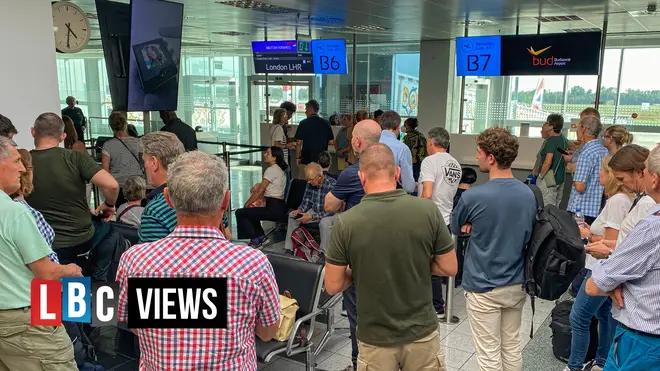
Rachel Johnson 7pm - 10pm
30 August 2023, 16:33

George is CEO and Co-Founder of AeroCloud
Since COVID, airports have faced increased disruption to flight schedules from industrial action, technical outages, weather disruption and more.
While undeniably a crisis when they occur, unfortunately, these events do occur.
The important thing is for airports to safely manage the situation on the ground and make the passenger experience as smooth as possible for the circumstances.
The ability to respond effectively in a crisis to minimise disruption for passengers will only come from airport operations leaders having a better understanding of events as they unfold in real-time.
Because without the ability to act decisively when unexpected disruption arises, airports quickly become congested with grounded aircraft and crowded terminals.
Yet, many airports lack the holistic view required to optimise their response.
This in part is down to the fact that airports bucked the digitisation trend many industries pursued during the pandemic.
Indeed, while other sectors accelerated, air travel came to a standstill and, as a result, many airports’ digital strategies were stalled.
This has resulted in a continued reliance on legacy technologies that can’t offer the up-to-date, holistic view that airports need to optimise their response to unplanned disruption.
Currently, airports rely on operations teams responding to peaks 'live', rather than using data to continually inform them and prompt them into making decisions that respond to the evolving situation.
For example, such data could help operations leaders optimise their gates management to increase capacity or improve how they are utilising the tarmac when parking grounded aircraft.
Similarly, the lack of visibility presents issues when it comes to ensuring the safety and security of passengers, as many airports can’t track passenger flow in real-time to identify potential pressure points, which would enable them to deploy their teams to better respond and manage the scenario.
Disruption, such as that which we’ve witnessed (and for some, experienced) over these past few days, shows how airports need to improve their ability to continuously react and respond to events as they occur to minimise the impact on passengers and international air travel.
Because, unfortunately, these events do happen – and airports need to be better prepared when they do.